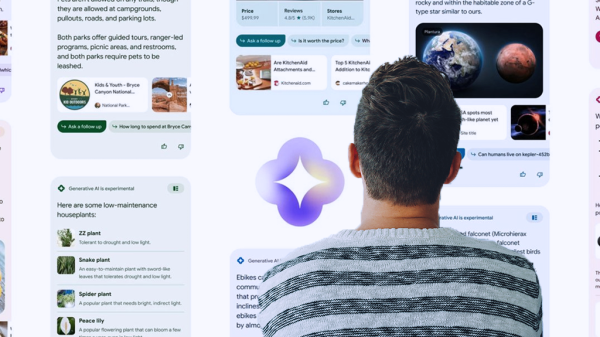RIP human reporters
So! Turns out I’m doomed. Evidently, Google is funding a machine to write news articles. And after all the good press I gave the robot apocalypse, too.
![]()
As my future is naught but despair and devastation, I suppose there’s nothing to talk about but history. Ever hear of Ned Ludd?
Old Ned Ludd
Even if you haven’t, you probably have. “Ludd” as in “Luddite,” which is to say, per Dr. Wik I. Pedia, “one opposed to industrialisation, automation, computerisation or new technologies in general.”
That’s really not fair.
First of all, Ned Ludd shouldn’t be remembered in history at all, because he isn’t. He wasn’t real. Ned Ludd, which may or may not be rural English for Edward Ludlam, was a Robin Hood-type fictional figure. They even both hung out in Nottingham, albeit some centuries apart.
Much like brave Sir Robin (extra geek cred for catching the reference), old Ned was both an empowerment fantasy and a cautionary tale. Robin Hood stories warned about the depredations of power-hungry nobles: here is what honest fellows who would farm and hunt may expect when rich men come for their land, and here is what may be done about it.
Likewise Ludd, who was the hero and horror story of 18th century industrialization.
Poking the bear
The story goes that Ned Ludd was an abused, developmentally disabled teenager. An “idiot boy,” in the charming idiom of the time. He worked for a weaver, and after either being mocked by children because he was due to lose his job, or failing to keep up with the pace that technology set for his job and being flogged for idleness by his masters – yes, masters, and yes, they could flog him; the 18th century sucked – he quite reasonably got a big stick and bashed said technology to scrap.
That brings us to second of all.
Ludd was right.
I mean, obviously he was right in the short term. If my options are “break something” or “starve,” give me 5 minutes, I got a wrench in the car.
But the real Luddites were right too.
The actual, historical Luddites weren’t kneejerk anti-technologists. They were skilled artisans, mostly weavers, which is to say, they required tech to do their jobs. And yet, they masked up and stomped out a bunch of machines, and when they got busted, remembering the tale, they’d say “Ned Ludd did it.”
Those workers weren’t afraid of technology.
They were afraid of what was being done with technology by people who didn’t understand the work they were doing.
Masters of their craft, they knew important aspects couldn’t be automated, and that those aspects, those fundamentally human qualities, could vanish in a generation if not systematically tended. People forget. Skills die.
The cost of robots
Now the dread machines are coming for me and like the Luddites, my first concern isn’t my job as such. I am hubristically hopeful no machine made by man can match my curling chestnut locks or inexhaustible supply of geek wisdom. Besides, if an evil robot does take my job, know what I used to do? Tech support. Thinking that’s gonna come up in the AI Age.
What I’m afraid of is what the Luddites were afraid of.
I’m afraid of what we lose.
The Luddites, those master artisans, understood the value of work. Work demands craft, experience and inspiration. Those things cannot be automated, and trying is not only silly but dangerous. They can only be acquired by doing the work, with the help of people who already know it.
Happily, neither that kind of learning nor that kind of work are in short supply, at least not yet.
Both went digital with the rest of humanity.
Ironically, the best example in the entire world is Google, whose core business model is acquiring, assessing and presenting the results of that work. On the whole, Google doesn’t create things, not even knowledge. It just aggregates, sorts and presents it better than anyone else. That’s a remarkable achievement, and it shouldn’t be undersold.
It also doesn’t change the fact that Google doesn’t do the work. Other people do.
The Ludd Question
Google’s business is connection, linking questions with answers, needs with solutions, people with people. Connection is the best part of the digital revolution. The worst, by far, is hacking the human parts out of vital systems and pretending they’re OK. Companies hack out employees. News outlets hack out fact checkers and failsafes.
It has become possible to have things that still work (barely) after you pull the humans out of them.
As it stands, and fair dues, it’s early days on this thing, that’s exactly what you get with the Google news robot. It produces nothing. To quote the article, it “turns news data into palatable content.” It’s built on the universal, deadly dangerous assumption of the digital age: somebody else has done the work. I just have to find it.
The trouble is that good journalism is about doing the work, and good work requires humans. Taking humans out of the equation means losing things that cannot be replaced.
At the end of the day, that’s the Ludd Question. How much can you afford to lose?
#RobotReporter
Matt Salter is a writer and former fundraising and communications officer for nonprofit organizations, including Volunteers of America and PICO National Network. He’s excited to put his knowledge of fundraising, marketing, and all things digital to work for your reading enjoyment. When not writing about himself in the third person, Matt enjoys horror movies and tabletop gaming, and can usually be found somewhere in the DFW Metroplex with WiFi and a good all-day breakfast.













































Pingback: AI can identify investment opportunities in crypto #mindblown - The American Genius